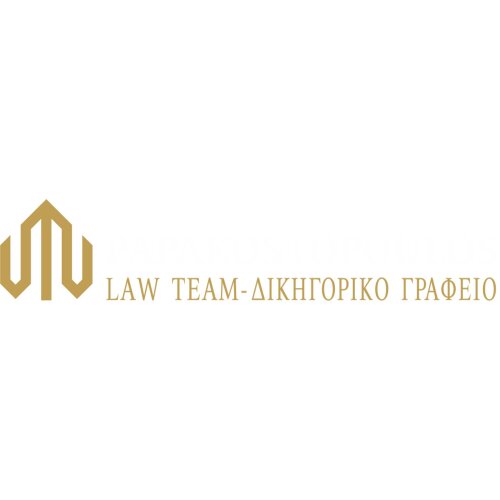Best Divorce & Separation Lawyers in Pátrai
Share your needs with us, get contacted by law firms.
Free. Takes 2 min.
Free Guide to Hiring a Family Lawyer
List of the best lawyers in Pátrai, Greece
About Divorce & Separation Law in Pátrai, Greece
Divorce in Pátrai, Greece, like the rest of the country, follows the specific regulations set out under Greek Law. The law makes provision for both consensual divorce (when both parties agree to the divorce) and contentious divorce (where parties cannot come to an agreement). The divorce process may involve issues such as child custody and access rights, alimony and property division. Just like the marriage, the divorce proceedings are usually done in the presence of a civil notary.
Why You May Need a Lawyer
An experienced divorce lawyer may prove invaluable in navigating through the complexities of divorce and separation proceedings. They can assist in negotiation and mediation processes, ensuring fair division of assets, and fighting for your rights concerning custody and access to children. The sensitivity of these matters, combined with the intricate Greek legal system, makes having someone well-versed in divorce law almost essential for a smoother process.
Local Laws Overview
In Greece, divorce & separation law requires either mutual consent or for one partner to prove the other's fault for the failure of the marriage. Consensual divorce needs the mutual agreement of the spouses to be recorded in a deed before a notary. On the other hand, a contention divorce can be granted on grounds like adultery, desertion, or long-term separation.
Frequently Asked Questions
What is the minimum period of separation before a divorce can be filed?
Generally, you cannot apply for a divorce until you and your spouse have been separated for at least two years.
Do I need to prove my spouse's fault to get a divorce?
Not necessarily, if both spouses agree and are willing to sign a mutual consent agreement, a divorce can be granted without the need to establish fault.
How is child custody determined in Greece?
In most cases, custody is shared between both parents, although the child may live with one parent while the other gets visitation rights. The court considers the best interests of the child while making a decision.
How are property and assets divided after divorce?
The courts in Greece will attempt to make an equitable distribution of marital assets. This doesn’t necessarily mean an equal distribution, but rather a fair one based on various factors such as each spouse’s income, contribution to the family assets, and future financial circumstances.
How long does the divorce process take in Pátrai, Greece?
The length of the divorce process in Greece can range from six months to two years or even more, depending on the complexity of the case and whether it’s a consensual or contentious divorce.
Additional Resources
For additional assistance, consider contacting local non-profit organizations that provide legal aid or counselling services. Additionally, the Greek Ministry of Justice, Transparency and Human Rights can provide further resources and guides.
Next Steps
If you've decided to proceed with divorce or separation, you should secure the services of a lawyer well-versed in Greek divorce laws. They can help to clarify your rights, discuss potential outcomes and prepare you for the process ahead. Alternatively, consider seeking advice from professional consultants or counsellors who can emotionally aid you during this strenuous process.
Lawzana helps you find the best lawyers and law firms in Pátrai through a curated and pre-screened list of qualified legal professionals. Our platform offers rankings and detailed profiles of attorneys and law firms, allowing you to compare based on practice areas, including Divorce & Separation, experience, and client feedback.
Each profile includes a description of the firm's areas of practice, client reviews, team members and partners, year of establishment, spoken languages, office locations, contact information, social media presence, and any published articles or resources. Most firms on our platform speak English and are experienced in both local and international legal matters.
Get a quote from top-rated law firms in Pátrai, Greece — quickly, securely, and without unnecessary hassle.
Disclaimer:
The information provided on this page is for general informational purposes only and does not constitute legal advice. While we strive to ensure the accuracy and relevance of the content, legal information may change over time, and interpretations of the law can vary. You should always consult with a qualified legal professional for advice specific to your situation.
We disclaim all liability for actions taken or not taken based on the content of this page. If you believe any information is incorrect or outdated, please contact us, and we will review and update it where appropriate.










